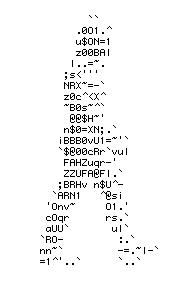Citizen Blogs auf News-Seiten
Steve Outing präsentiert bei einige interessante Ansätze zur Thematik des "People-Journalism" und verschiedener Participatory-Journalism-Modelle:
The online news business has introduced plenty of buzzwords over the last decade. Among the latest crop is "participatory journalism" -- the idea that citizens can be empowered to publish their own "personal journalism," alongside (and complementary to) professional reporters.
The industry has also been dabbling in "blogging" for a while now. Web logs have been around for several years, and now news organizations are taking the trend seriously.
Combine participatory journalism and blogging and what have you got? Why, citizen bloggers, of course -- who could bring big changes to online news.
Hier gibt's den vollständigen Artikel zum Nachlesen: Advancing Citizen Blogs on News Sites.
The online news business has introduced plenty of buzzwords over the last decade. Among the latest crop is "participatory journalism" -- the idea that citizens can be empowered to publish their own "personal journalism," alongside (and complementary to) professional reporters.
The industry has also been dabbling in "blogging" for a while now. Web logs have been around for several years, and now news organizations are taking the trend seriously.
Combine participatory journalism and blogging and what have you got? Why, citizen bloggers, of course -- who could bring big changes to online news.
Hier gibt's den vollständigen Artikel zum Nachlesen: Advancing Citizen Blogs on News Sites.
Cyberwriter - 17. Okt, 13:37 - online Journalism
0 Kommentare - Kommentar verfassen - 0 Trackbacks




















